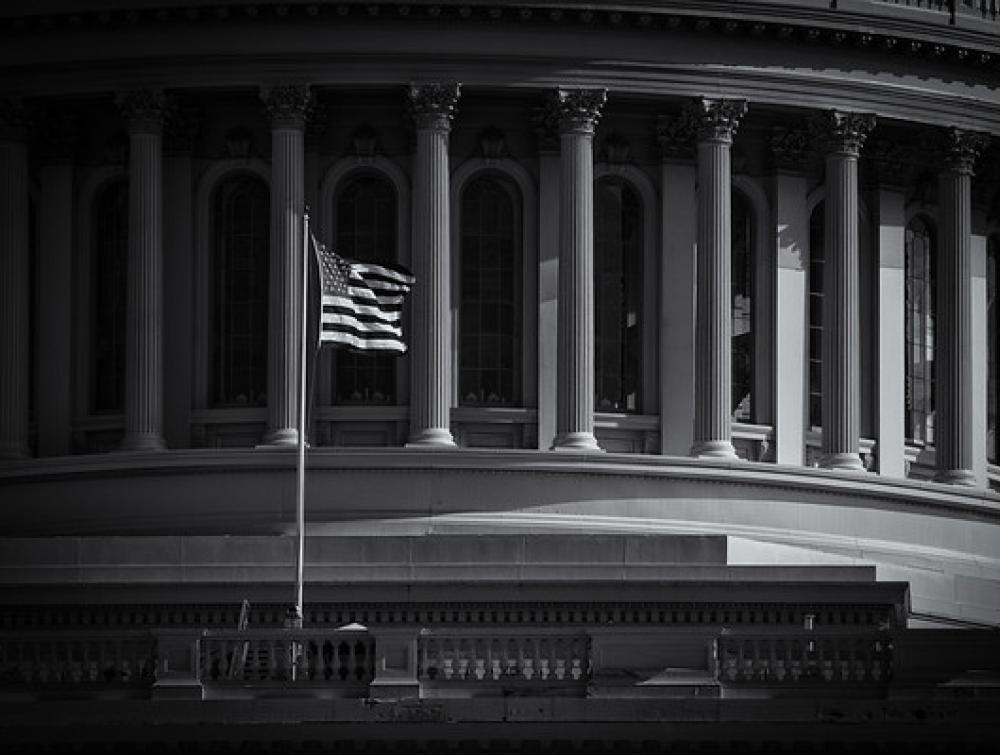House GOP Readies Aggressively Anti-Climate, Anti-Public Lands Energy Bill

US Capitol
Mason Cummings, TWS
In the wake of the Biden Administration approving the controversial Willow project, a 239 million metric ton carbon bomb, House Republicans are somehow managing to raise the stakes, fast tracking their flagship polluter bill that amounts to their opening bid in negotiations with the Senate. The bill, H.R. 1, is reportedly getting marked up next week, and could be on the House floor by the last week of March.
House Republicans are lumping together up a myriad of awful bills that emerged from committees last week into what opponents have dubbed the Polluters Over People Act, listed as H.R. 1, which signifies it as their top priority this legislative session. H.R. 1 would include measures to gut NEPA community protections, give away public lands to Big Oil and mining companies and allow corporate polluters more freedom to drill and mine in our communities without letting those affected have a say – and make no mistake, elements of them will be pushed hard in any negotiations between the House and Senate in the coming months.
Locking in decades of fossil fuel dependency and climate pollution
Nearly a quarter of U.S. greenhouse-gas emissions can be attributed to fossil-fuel development on federal lands and offshore waters. The climate-killing bill would continue to promote and expand oil and gas production across the U.S. at a time when these dirty fuels are spurring unchecked climate change devastating the nation with drought, floods, species extinctions and fire. Segments of the bill include:
-
Requiring approval from Congress before the President can issue a moratorium on fracking which releases massive amounts of methane harming communities and threatening the climate’s future.
-
Stripping away the Methane Emissions Reduction Program – a key provision in the Inflation Reduction Act -- which supports efforts to reduce methane emissions from the oil and gas industry, improve monitoring, fund environmental restoration and help communities reduce the health impacts of pollution.
-
Expressing disapproval of the revocation by President Biden of the Presidential permit for the Keystone XL pipeline: even the oil industry has abandoned Keystone XL, but that isn’t stopping House Republican leaders from trying to resurrect a 1,200-mile project that would have cut across the U.S. and critical habitat, which Biden denied a key permit for early in his administration, avoiding an environmental and climate disaster.
Attacking government accountability and meaningful public input
House Republicans are lumping together three previously stand-alone bills (TAP American Energy Act, PERMIT-MN Act and BUILDER Act) within H.R. 1 that would:
-
Repeal common-sense, long-overdue and hard-fought reforms to the onshore and offshore oil and gas leasing programs enacted in the Inflation Reduction Act that ensure oil and gas companies pay a fairer share to communities. The proposal would also require all pending applications for permits to drill (APDs) to be approved in 30 days and force the Department of the Interior to hold lease sales quarterly in every state with oil and gas reserves, even though the fossil fuel industry already holds leases covering nearly 24 million acres — nearly half of which aren’t being developed, but now aren’t able to be managed for conservation and community benefits instead.
House Republicans are pushing a destructive proposal that is a public lands giveaway to mulitnational mining corporations, who have left behind a legacy of toxic pollution across this country, destroying precious environmental and Indigenous sacred sites. The proposal would:
-
Fast track toxic mining on public lands, arbitrarily shorten National Environmental Policy Act (NEPA) public review timelines and override a century of legal precedent around mining claims. The proposal would change federal law to make mining the priority use for public lands—effectively locking out other uses of federal lands, like for recreation or responsible renewable energy development— while undermining provisions that ensure informed, scientific and transparent agency decisions. This would constrict the public’s voice, including basic Tribal consultation principles and judicial review–existing protections that keep polluters from harming our health, safety, communities and treasured and sacred landscapes.
After multiple failed attempts by West Virginia senators to push a permitting overhaul last year, which Members of Congress, Tribes and native organizers and climate and environmental groups, including The Wilderness Society, fiercely opposed, House Republicans are now attempting to make sweeping changes to NEPA under the auspice of “permitting reform”. Let’s be clear here, this isn’t ‘reform,’ this is gutting NEPA, a bedrock environmental law. The proposal would:
-
Radically limit the scope of reviews by federal agencies and entirely eliminate government accountability when agencies fail to adequately consider the health, environmental, or economic impacts of their decisions. If passed, this proposal would fundamentally undermine the purpose of NEPA and essentially silence the voices of frontline communities and local governments.
Eliminating management of toxic waste and pollution
As another part of H.R. 1, House Republicans are considering series of proposals that would slash standards that protect human health and the environment from the hazards of industrial waste, such as waiving the Clean Air Act (CAA) and Solid Waste Disposal Act (SWDA) requirements for waste produced by industrial energy facilities like petrochemical and mine waste and allowing for energy facilities to operate before securing a permit. The result would be the release of harmful pollutants like radioactive waste to petrochemicals into our air and water, threatening the environment and health of people in frontline communities.
The Wilderness Society is here as a resource if you have questions or need assistance in reporting. We can connect you with community advocates, energy experts and scientists. For more information, contact Tony Iallonardo of The Wilderness Society at newsmedia@tws.org.
